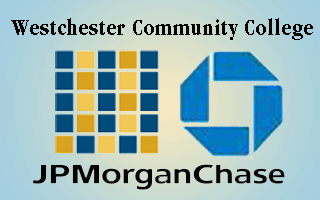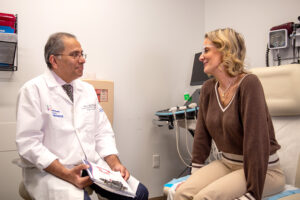 A new grant from JPMorgan Chase will result in an analysis of critical job skills gaps in the area. Westchester Community College was awarded the $150,000 grant to develop a Middle Skills Gap Report for the Lower Hudson Valley region. Middle skills jobs are those requiring education beyond high school but less than a four-year degree. The National Skills Coalition reports that key industries in the United States are unable to find enough sufficiently trained workers to fill these positions. In New York State, 46% of anticipated job openings through 2022 will be in this category, including many Westchester positions in healthcare, information technology, and advanced manufacturing.
A new grant from JPMorgan Chase will result in an analysis of critical job skills gaps in the area. Westchester Community College was awarded the $150,000 grant to develop a Middle Skills Gap Report for the Lower Hudson Valley region. Middle skills jobs are those requiring education beyond high school but less than a four-year degree. The National Skills Coalition reports that key industries in the United States are unable to find enough sufficiently trained workers to fill these positions. In New York State, 46% of anticipated job openings through 2022 will be in this category, including many Westchester positions in healthcare, information technology, and advanced manufacturing.
The goal of this grant-funded project is to identify the middle skills jobs that regional employers will need to fill in order to remain competitive and to determine the education, training, and credentials required for these positions. The resulting report will enable stakeholders to understand the skills and competencies required for various job titles so that community colleges and four-year institutions of higher learning, high schools offering career and technical education programs, and other training providers can align curricula and credentials with actual industry needs. The result will be a collective strategy for addressing middle-skills workforce needs in the Lower Hudson Valley and the development of clear educational and career pathways that secure entry and advancement into middle-skill jobs. The ultimate goal is to insure a pipeline of appropriately trained individuals for regional employers.
“New York employers are looking to hire individuals with advanced skills, but area job seekers often struggle to figure out which skills they need and where they can learn them,” says Chauncy Lennon, Head of Workforce Initiatives at JPMorgan Chase. “Through research projects like this one, we’ll identify the data to help drive the right solutions to address the gaps between New York employers and job seekers.”
“Linking our educational offerings to actual jobs in the local workforce is a critical part of our mission,” says Dr. Belinda S. Miles, Westchester Community College President. “This key research project will allow our institution, and many others responsible for training and educating tomorrow’s workforce, to ensure we will be able to match academic programs with existing and future job openings and career opportunities.”
The grant was secured by the Westchester Community College Foundation. Westchester Community College’s Division of Continuing Education and Workforce Development will coordinate this project and work in collaboration with regional education, business, workforce, and economic development agencies, including but not limited to the Business Council of Westchester, the Westchester County Association, the Hudson Valley Economic Development Corporation, the Westchester/Putnam Workforce Investment Board, the Workforce Investment Board of Rockland County, Westchester and Rockland Directors of Economic Development, the President of Putnam County’s Economic Development Corporation, regional educational providers, and other applicable stakeholders in the Lower Hudson Valley in addition to Rockland County Community College and Dutchess Community College. It is anticipated that the Middle Skills Gap Report will be released by early 2016.
“Employers consistently tell us that there is a mismatch between skills required and jobs available,” says Marsha Gordon, President and CEO of the Business Council of Westchester. “Resolving this gap will be the key to a strong bridge to job development and a vibrant economy. Westchester Community College’s great expertise, along with JPMorgan Chase’s generous support, will guide future business growth in Westchester and the region. We look forward to partnering with the college to gather the best information from the business community.”
Marissa Brett, President of the Westchester County Association, also hails this effort. “We congratulate Westchester Community College, a member of WCA’s Higher Education Committee, on the award of this generous grant that will help close the middle skills gap,” she says. “At present, the County has an exploding biotech and health tech industry that requires a skilled workforce. The grant will better position workers to fill current vacant positions and enable employers to be even more innovative and competitive,” she adds.
Workforce readiness is one of the funding priorities for JPMorgan Chase Global Philanthropy, specifically “JPMorgan Chase believes that addressing the skills gap can be one of the most powerful tools for reducing unemployment and expanding economic opportunity.” As a part of the Chase New Skills at Work initiative, skill gap reports have been funded in several metropolitan areas throughout the United States with the intent to accelerate and support demand-driven skills training.






